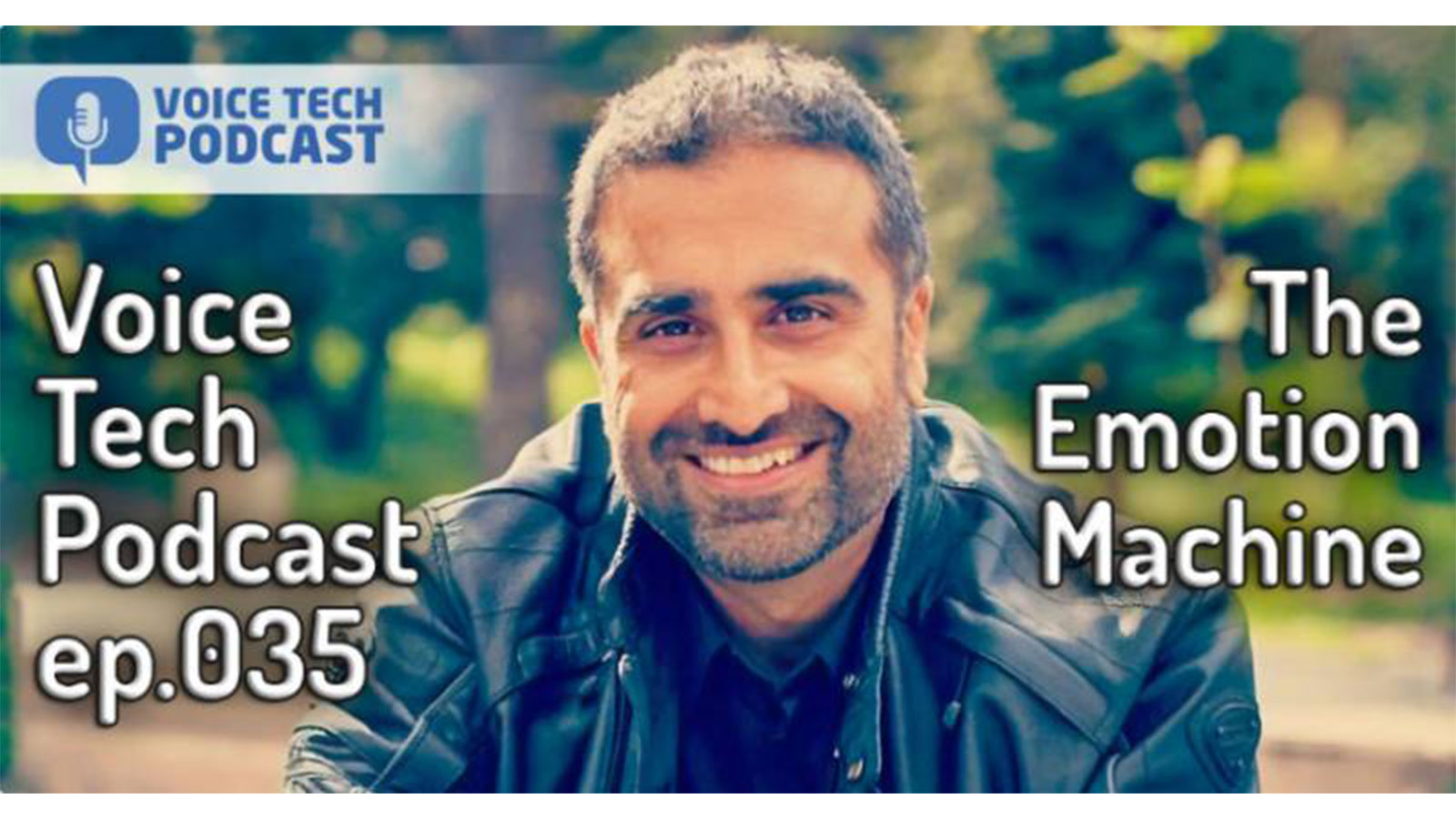
Why machines should recognize & express human emotions
The FUTURE TECH PODCAST is a voice technology podcast that’s focused on voice technology hosting articles and conversations with voice technology experts. Rana Gujral, was interviewed by Carl Robinson for their 35th episode. The podcast titled The Emotion Machine – Rana Gujral, Behavioral Signals – Voice Tech Podcast ep.035 runs for just over 50 mins and definitely dives deep into emotion AI technology and the reasons why it’s important that machines can recognize and express human emotions.
Listen to the podcast or grab the highlights below. Make sure you visit the Voice Tech Podcast daily for sector news:
Episode description
Rana Gujral is the CEO of Behavioral Signals, a company that allows developers to add speech emotion and behavioral recognition AI to their products. We discuss the many reasons why it’s important that machines can recognize and express human emotion, including improving human-computer interaction and boosting business KPIs.
We discover why voice is the best modality for analyzing emotion, then highlight some of the many business and consumer use-cases for this technology. Finally, we dive into the signal processing pipeline that makes it all work, and Rana shares his advice for working with this technology.
This is one of my favorite conversations of the year so far. It’s a topic close to my heart, having previously worked on voice emotion transformation in the lab, and I feel it’s one of the most important technologies to close the gap between humans and machines. Rana is also a very articulate and inspirational speaker, which makes this an unmissable conversation.
Highlights from the show
– Why is it important that machines that can read, interpret, replicate and experience emotions? It’s an essential element of intelligence, and users will demand and require increasingly greater intelligence from the machines they interact with
– How does emotion analysis improve human-computer conversations? It helps to establish conversational context and intent in voice interaction
– Why is having theory of mind important for machines to understand us? It lets machines emulate empathy, which is an essential component of natural conversation. People treat voice assistants differently depending on how the technology communicates – more empathy creates different outcomes
– How does adding emotion AI to your product help your business? Knowing what is being said and how it’s being said allows you to take decisions to improve your KPIs
– Why is voice the best modality for analyzing emotion? Our eyes can deceive us, as humans are adept at masking their emotions in their facial expression, but much less so in our voices
– What are the use cases for voice emotion analysis? Improving empathy in social robotics platforms, making voice assistants more relatable, boosting sales in call centers, reducing suicide rates in helpline callers…
– What’s the signal processing pipeline of the system? Data collection, Signal analysis, Modeling
– Advice for people looking to enter the research field of emotion analytics? Find a niche area that improves the quality of life for people


